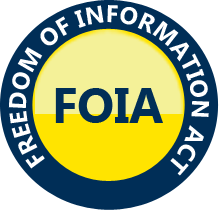By Saachi Shah | UConn Journalism
May 14, 2025

A $49 “Heart Attack Burger” topped with foie gras and black truffles. A $26 filet mignon. Lobster ravioli at $23.95 a plate. These weren’t menu items from a gourmet restaurant but expenses revealed by the Hartford Courant on receipts from the Bloomfield Town Council’s budget meetings in 2018. The Courant reported that council members spent over $2,500 on high-end meals — $1,100 more than the previous council.
The lavish spending might have remained hidden from taxpayers if not for the Courant’s use of Connecticut’s Freedom of Information Act, which allowed it to obtain the receipts and publish a story that prompted immediate calls for reform from embarrassed town officials.
This story represents just one of many moments when the FOI Act transformed from an abstract legal principle to a powerful civic tool, bridging the gap between government information and public knowledge.
As Connecticut’s landmark transparency law marks its 50th anniversary this year, its legacy as a model for open government continues.
Mitchell Pearlman, the first executive director of the Freedom of Information Commission, said the creation of the commission broke new ground in global public transparency policy.
“The novelty of the Connecticut act is that they created an independent commission to determine cases when people filed complaints that they were denied access to government records or meetings,” Pearlman said. “And there was nothing like that anywhere in the world.”
Connecticut’s law, established in 1975, guarantees public access to most government records and meetings. Pearlman said the law created the commission, the first of its kind in the world, which serves as an independent watchdog ensuring compliance with transparency requirements.
Pearlman said that when the commission first started, there was no infrastructure or example to follow, and he built it with limited resources.
“The first problem was that it wasn’t really staffed at all,” Pearlman said. “Basically, the legislature passed a law … and they were giving $10,000 basically to buy some file cabinets and desks and no money for staff. So, we had to create regulations and inform people how they can go about filing complaints.”
Unlike many states where FOI Act requests can languish for months or even years, Connecticut’s law mandates relatively quick responses, often sooner than a year, and provides an accessible appeals process when requests are denied, according to Pearlman.
Colleen Murphy, the current executive director and general counsel of the commission, said the commission tries to resolve cases before they even reach a hearing.
“We have this whole mediation piece that occurs before [a formal hearing],” Murphy said. “About two-thirds of all of our cases get resolved that way.”
Beyond case resolution, Murphy said the commission also plays a key role in educating officials and ensuring continued compliance.
“We try to get the parties to work on a resolution,” she said. “Sometimes it’s just that the agency official doesn’t really understand the law.”
For journalists, the law provides investigative leverage. When traditional reporting methods hit institutional barriers, FOI requests can serve as the key that unlocks closely guarded information.
Matthew Kauffman, a retired investigative journalist from the Courant, said he tried to obtain information informally first, but turned to FOI when officials resisted disclosure.
“My first course of action is always just to ask politely … and then if they’re still saying, no, we’re just not going to give it to you, and I think the law is on my side, then I would file a formal complaint,” Kauffman said.
Kauffman said FOI helped him report on preventable deaths and misconduct by public employees whose behavior might otherwise have gone unreported.
“There are stories we did on deaths in group homes run by the state … and those things tend not to get reported on, get known about,” Kauffman said. “Using the FOI Act, we were able to get access to an enormous amount of information that the state had collected.”
Russell Blair, a former Courant journalist and now the director of education and communication at the commission, said he has seen firsthand how public records can shape stories and strengthen accountability.
Blair said that official statements often leave out important context or details that reporters can uncover through public records.
“It’s a strong tool, but I think people should realize it’s not a substitute … it allows you to pursue things and to confidently report things are happening because you’ve got the documentation to show that it did happen,” Blair said.
Blair said submitting an FOI request can sometimes feel provocative because it initiates a legal process instead of a casual request.
“One of the challenges is sometimes it can seem a little bit confrontational … really by FOI, you’re saying, ‘look, the force of law is saying you have to give me this information’,” Blair said.
He also said FOI’s value extends beyond documents to ensuring the public’s right to attend and stay informed on government meetings.
“The FOI law also requires all boards and committees and agencies in town to notice their meetings … They have to publish agendas … they have to have minutes that reflect the votes that were taken,” Blair said. “Requiring people to do their work in public … I think that’s a really, really important thing.”
Even as Connecticut celebrates five decades of its FOI Act, Pearlman said new issues make it harder to access government records. The rise of exemptions in the law has gradually eroded its original intent, he said.
“Every special interest … tries to amend each year and carve something else out. So, it’s sort of like … death by a thousand cuts,” Pearlman said. “There’s so many exceptions that it’s really very hard to figure out what your citizen is entitled to and what they’re not.”
Pearlman said that adding more staff would help the commission respond faster and meet its goals.
“You have to staff it adequately so that there’s no delays caused by a lack of personnel to handle the complaints,” Pearlman said.
Despite these challenges, advocates still believe the law holds tremendous potential for the public. Murphy said that new technology, including AI, could improve FOI responsiveness if used thoughtfully.
“AI may be used to help government respond more quickly to freedom of information requests,” Murphy said. “My hope … is just that all of this kind of technology is somehow used in a way that enhances public access.”
Blair said journalists should treat FOI as an extension of their reporting and be as specific as possible when submitting a request.
“The best FOI requests are supported by your reporting … where you’re looking for a very specific set of records,” Blair said. “Try to make specific requests … instead of just casting a wide net.”
Kauffman said that FOI remains one of the most powerful laws available to the public to hold government accountable.
“The Freedom of Information Act isn’t just a legal tool—it’s the foundation of a functioning democracy,” Kauffman said.
